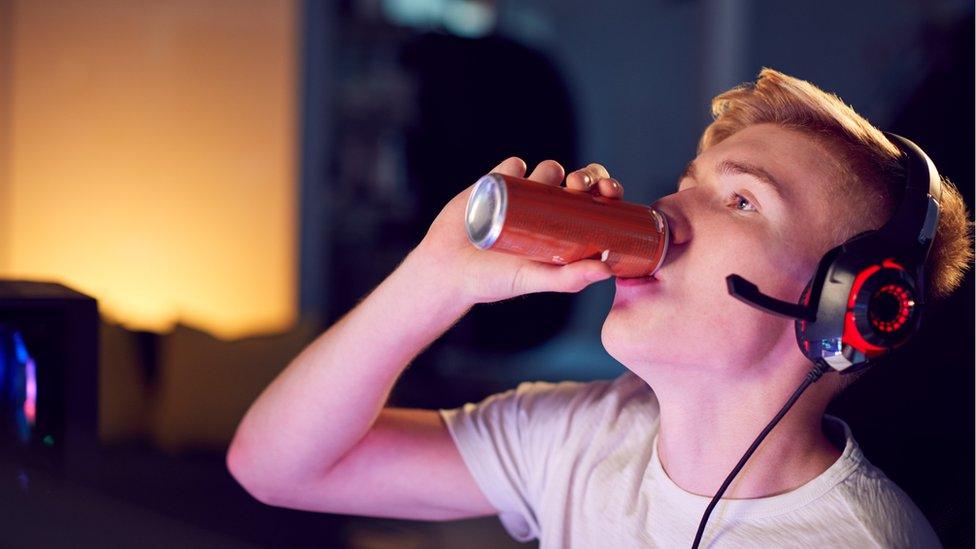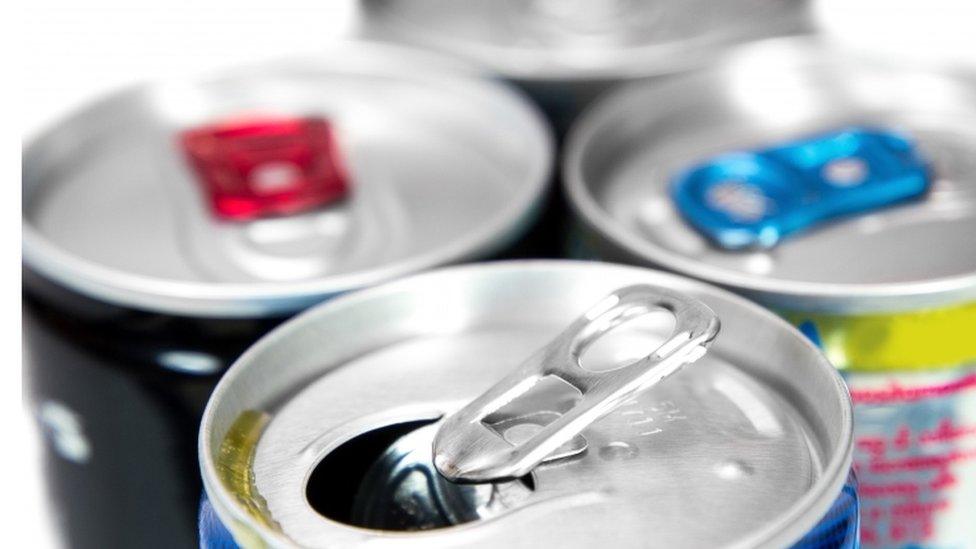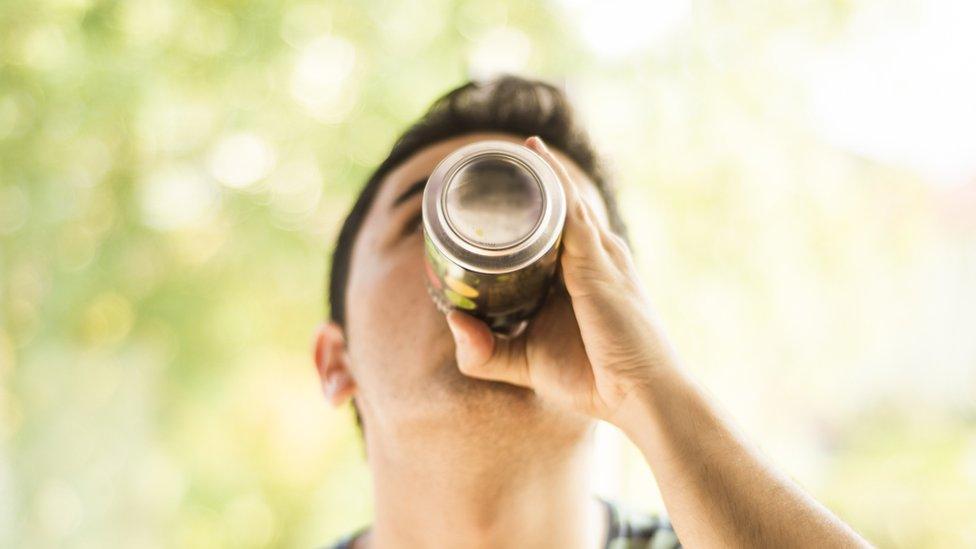New study finds a third of UK children drink energy drinks every week
- Published
- comments

A new government study has found that as many as one in three children in the UK are having energy drinks weekly, while some are drinking them nearly every day.
It warns that the drinks could affect behaviour and those children who drink them more often may develop issues such as headaches and sleep problems.
Many shops already stop under-16s from buying the drinks, which can be high in caffeine and sugar.
The UK Government has said it will soon ban sales to children because advice and warning labels have not made a big enough difference.
What you think of energy drinks? Do you drink them? And if so, how often? Let us know in the comments below.
What did the study find?

The study looked at data from thousands of children in the UK, as well as youngsters in other countries from around the world, including the USA and Canada.
It found that up to half of children around the world drink energy drinks at least once a week and that boys are more likely to drink them than girls.
It also found that drinking them five or more times a week is linked to poorer mental and physical health and worse performance at school.
However the researchers say that that their findings rely on surveys, and so they cannot prove that energy drinks cause problems for children and that further studies could be needed.
Claire Khouja from the University of York, who led the study, said: "Our research has uncovered consistent evidence of links between the regular consumption of these drinks and harmful effects on children's overall wellbeing.
"These findings offer support for a government policy banning the sale of energy drinks to children."

What is the problem with energy drinks?
Energy drinks are designed to give you short bursts of energy.
They have high levels of sugar and of something called caffeine.
There are worries that caffeine - which can also be found in coffee and fizzy drinks - can have a bad affect on young people's brains.
Too much of it can increase a person's heart rate, make it harder to concentrate and harder to sleep.
